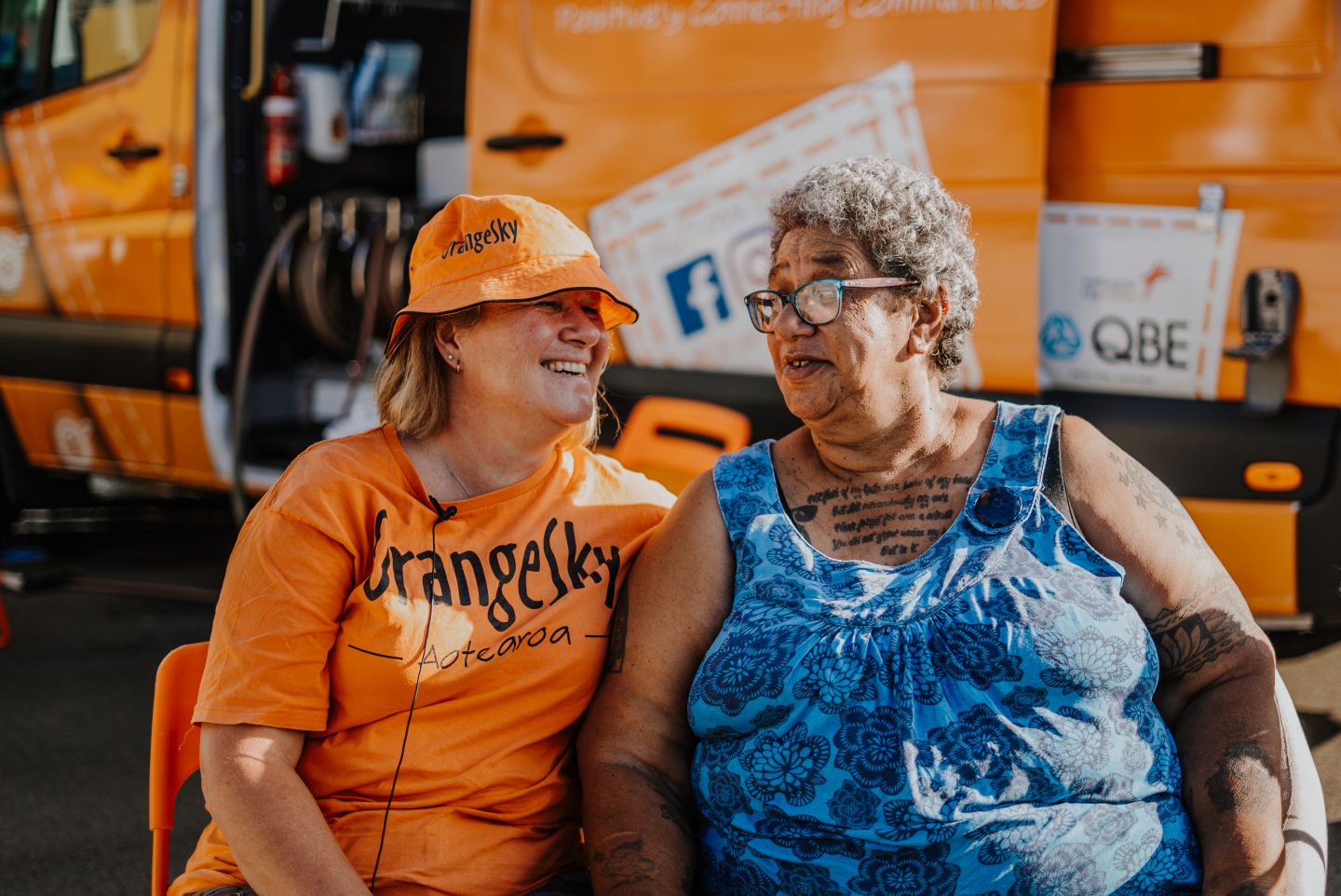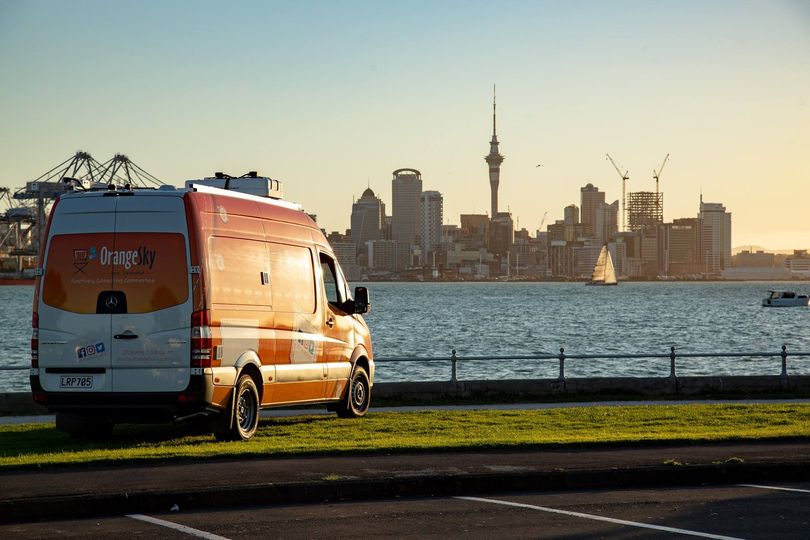Homelessness can be far-reaching having intergenerational impacts and is associated with a range of poor social and economic outcomes. It is driven by system failures and individual vulnerabilities, such as trauma, family violence, mental health and addictions, relationship breakdowns, ill health, and periods of imprisonment. A lot of whānau who use our service tell us that homelessness is not just about their living situation, but also the absence of human connection and a sense of belonging. Many of those who regularly use our services represent those most vulnerable in our community.
Back in 2018, there were 41,600 Kiwis counted as experiencing homelessness on Census night.
With the cost of living crisis, we know the latest figures will be much higher. These aren’t just statistics; they represent whānau in our communities.

Orange Sky is committed to working alongside whānau and working with community leaders to identify where the need is greatest and how we can have an impact.
We take a unique approach to service delivery. We look at the figures representing homelessness and it’s important to remember there is a face behind every number that makes up those figures.
Partnering and collaborating with other service providers, local iwi and community leaders ensures we provide a wrap-around service for our whānau. We know the connection created through communities working together provides whānau with the community-led solutions they need.

An Orange Sky shift is usually two to three hours long. We have a team of at least four volunteers who will arrive at each shift and one who will drive the van for certain shifts.
Each of our shifts is connected with another service provider. We work together to collaboratively walk alongside whānau and learn from each other. The location of each shift depends on the service provider. We will usually base ourselves at their location where whānau already know they can access support services. Our shift rosters do not change each week to ensure consistency and reliability for the community. Those who come to shift can wash and dry their laundry, and have a warm shower and kōrero with volunteers. Through these actions, our volunteers strive to increase dignity and enhance mana for everyone we serve.

We regularly receive emails and calls from communities seeking Orange Sky’s support. While we aspire to be everywhere we are needed and aim to double our impact each year, we rely on both volunteers and funding to make this possible.
NZ Census data helps us identify areas of greatest need, but we also kōrero with community leaders to gain further insights.
If you’d like to discuss a particular area of need or help fund a service, we’d love to kōrero with you further.

In 2014, two 20-year-old mates, Nic Marchesi and Lucas Patchett, founded the idea in a garage in suburban Brisbane…
Orange Sky became the world’s first free mobile laundry service, dedicated to supporting people experiencing homelessness and hardship.
It didn’t take Nic and Lucas long to realise that while clean laundry was important, it was genuine kōrero and connection that had the greatest impact. That’s why we pull out six orange chairs at every one of our shift locations – to actively welcome and connect with our whānau.
After growing the laundry and shower service all over Australia, it was time to look to Aotearoa to start helping the 41,000 Kiwis who were experiencing homelessness across the motu.
On World Homeless Day 10th October 2018, we completed our first load of laundry for whānau in Tāmaki Makarau Auckland.

Look back through our story so far..
Since the beginning, Orange Sky has supported whānau doing it tough by providing access to free laundry, warm showers, but most importantly, a place for connection and genuine kōrero.
No, Orange Sky has no religious or political affiliations. Orange Sky volunteers spend time on shift connecting with whānau doing it tough through genuine and non-judgemental conversations.
We are fortunate to receive support from a cross-section of the community. Some funding comes from corporate partners, some from philanthropic individuals, trusts and foundations, and some from our generous supporters. If you are interested in supporting, learn more on our Get Involved page.
We refer to people using our service as whānau as that is what they are – they are our friends, our family, our community. We know that with a whānau-centred approach, we can achieve greater outcomes for our communities and country.

















